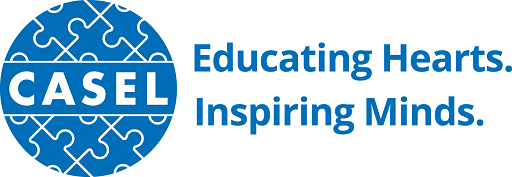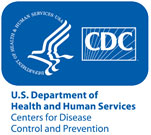Standards & Effectiveness
The Michigan Model for HealthTM Program is nationally recognized as an evidenced-based health curriculum and has been a part of many research projects over the past 20 years. The MMH Program Pre-K to 12th grade curriculum meets national and state health education standards that is relied and used within over 38+ states.
Proven Positive Health Outcomes for Students
- Less reported alcohol and tobacco use
- Stronger drug refusal skills
- Better interpersonal communication skills
- Less reported aggression
- Improved safety skills
- Better self-management skills
- Improved physical activity and nutrition skills

The Michigan Model for HealthTM is approved as an effective Social and Emotional Learning Program by the Collaborative for Academic, Social, Emotional Learning (CASEL). CASEL is a trusted source for knowledge about high-quality, evidence-based social and emotional learning (SEL). The MMH Program is published in the CASEL Guide: Effective Social and Emotional Learning Programs which provides a systematic framework for evaluating the quality of classroom-based SEL programs. CASEL uses this framework to rate and identify well-designed, evidence-based SEL programs with potential for broad dissemination to schools across the United States.

The Michigan Model for HealthTM Grades Pre-K to 12 curriculum meets the 2007 National Consensus for School Health Education National Health Education Standards (NHES) by aligning the health education knowledge and skills needed at each grade level. View the MMH skills competencies alignment guide with NHES. The NHES provides a framework for teachers, administrators, and policy makers in designing or selecting curricula, allocating instructional resources, and assessing student achievement and progress. The NHES are written expectations for what students should know and be able to do by certain grade levels to promote personal, family, and community health.

The Michigan Model for HealthTM Pre-K through 12th grade curriculum meets the Michigan Health Education Standards. The Health Education Standards reflect legal requirements, best practices, and current research in the teaching and learning of health education. For questions regarding the Michigan Health Education Standards, contact Scott Martin, School District Consultant, at MartinS27@michigan.gov.

The Journal of School Health (JOSH), provided by the American School Health Association (ASHA), contains articles on school health practice, theory, and research related to the health and well-being of school-aged youth. View the following Michigan Model for HealthTM JOSH research articles:
- O’Neill JM, Clark JK, Jones JA. Promoting Fitness and Safety in Elementary Students: A Randomized Control Study of the Michigan Model for Health, J Sch Health. 2016; 86: 516-525.
- O’Neill JM, Clark JK, Jones JA. Promoting Mental Health and Preventing Substance Abuse & Violence in Elementary Students: A Randomized Control Study of the Michigan Model for Health, J School Health, 2011; 81: 320-330.

The Michigan Model for HealthTM addresses all major health risk behaviors as identified by CDC. The U.S. Department of Health & Human Services Centers for Disease Control and Prevention (CDC) identifies risk behavior areas that have the greatest effect on the short-term and long-term health of young people. They include: Injuries and Violence; Tobacco Use; Alcohol and Other Drug Use; Sexual Behaviors that contribute to Unintended Pregnancies and Sexually Transmitted Infections; Unhealthy Food Choices; and Physical Inactivity. For more information, visit https://www.cdc.gov.

The Michigan Model for HealthTM is based on the Health Belief Model which is one of the most widely adapted models for understanding health behavior change. View the Rural Health Information Hub’s Evidence-based Rural Health Promotion & Disease Prevention Toolkit.

The National Institute of Justice recognizes the Michigan Model for HealthTM as a Reliable and Evidence-based Program. CrimeSolutions.gov is an online clearinghouse that performs rigorous evaluations and meta-analyses to assess the strength of the evidence about whether programs achieve criminal justice, juvenile justice, and crime victim services outcomes in order to inform practitioners and policy makers about what works, what doesn't, and what's promising. View the Michigan Model for Health™ CrimeSolutions.gov program listing.

The U.S. Department of Health & Human Services recognizes the Michigan Model for HealthTM as an Evidence-based Program. A two-year, two-State evaluation study proves the Michigan Model for Health™ works. The study design and outcomes met the rigorous standards used by the U.S. Dept of Health & Human Services Substance Abuse and Mental Health Services Administration (SAMHSA) which recognizes the Michigan Model for Health as an Evidence-Based Program and Practice. For more information, visit https://www.samhsa.gov.
